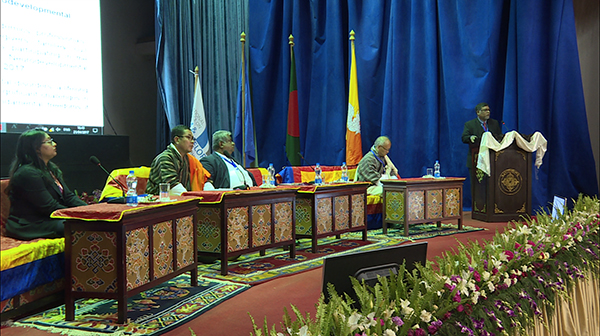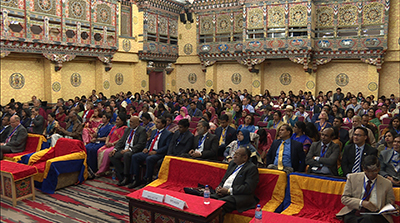 The three-day international conference on autism and neurodevelopment disorders concluded with a pledge to integrate needs of people suffering with autism and other neuro disabilities into the national health and socio-economic development plans.
The three-day international conference on autism and neurodevelopment disorders concluded with a pledge to integrate needs of people suffering with autism and other neuro disabilities into the national health and socio-economic development plans.
As representatives from the WHO South-East Asia countries at the conference adopted Thimphu Declaration, they pledged inclusive approaches for autism and neurodevelopment disorders.
The Declaration emphasises on a need to put in place disability friendly policies in the region in all fields inclu ding health, education, social services, and governance. The declaration also stresses on giving specific attention to strengthening national capacities in the health, education and social care sectors to provide effective services and support to people with autism spectrum disorder (ASD) and other neurodevelopment disorders (NDDs).
ding health, education, social services, and governance. The declaration also stresses on giving specific attention to strengthening national capacities in the health, education and social care sectors to provide effective services and support to people with autism spectrum disorder (ASD) and other neurodevelopment disorders (NDDs).
At the closing, the Health Minister said emphasis should be made on the need for advocacies to raise awareness and to eliminate stigmatization and alienation as well as to promote holistic family involvement in the region.
“We will strive towards strengthening early diagnosis, interventions, and evidence generation through robust screening and assessment system, referral and intervention initiatives, data collection system, and capacity building,” said Health Minister Tandin Wangchuk.
The Thimphu Declaration also calls upon policy makers, academicians, CSOs, NGOs, the private sector and the media to join hands in addressing autism and other neurodevelopment disorders.
It also solicits support from the United Nations, World Health Organization and other multilateral and bilateral partners in achieving the goals of the declaration.
The declaration also called on the countries in the region to share experiences and best practices.
Autism and other neurodevelopment disorders are lifelong disabilities that affect brain functioning. According to the World health Organization, ASD (Autism Spectrum Disorder) is a public health issue affecting one in 160 people globally.












